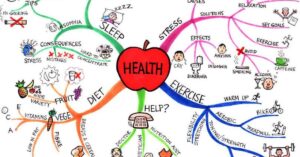
Technology is transforming how we live, work, and connect, driving progress at an unprecedented pace. From artificial intelligence to smart devices, it redefines everyday life and industries. The rapid advancements in technology promise a future of limitless opportunities.
In essence, technology refers to the application of scientific knowledge for practical purposes, enhancing human life. Innovations like AI and automation are not just trends—they’re shaping the future, offering new avenues to stay ahead. Embracing technology means staying forward, continuously adapting to the evolving world around us.
How Technology Shapes Everyday Life
Technology has become an inseparable part of daily routines, influencing how we live, work, and play. From smart devices that control our homes to wearable health trackers, innovation enhances convenience and improves our quality of life. Tasks that once required effort and time are now accomplished with a simple touch or voice command.
Beyond convenience, technology has empowered individuals to achieve more in less time. Remote work platforms, online learning tools, and digital productivity apps have redefined traditional systems. This shift not only saves time but also encourages a more flexible and dynamic approach to balancing personal and professional life.
The Impact of Technology on Global Connections
Technology has erased borders, bringing people from different corners of the world closer together. Social media platforms, messaging apps, and video conferencing tools enable real-time
communication regardless of distance. These tools have fostered relationships, collaborations, and opportunities that were once unimaginable.
This global connectivity has also paved the way for cultural exchange and understanding. People can now share traditions, ideas, and perspectives across continents, creating a sense of shared humanity. As a result, technology has become a powerful bridge that unites diverse communities and nurtures global partnerships.
Promises and Pitfalls of Technology
Technology has revolutionized how we live, work, and connect, offering solutions to global challenges such as healthcare advancements and climate change innovations. These breakthroughs promise a brighter future by improving efficiency and enhancing our quality of life.
However, the rapid pace of technological progress brings risks, including job automation, digital inequality, and ethical dilemmas. As we embrace innovation, it’s crucial to balance these advancements with fairness, ensuring technology benefits everyone without leaving anyone behind.
Politics and Privacy
The clash between politics and privacy is a growing concern in the digital age. Governments often justify surveillance for security, risking individual freedoms. Striking a balance is crucial to protect both privacy and safety.
Technology has intensified privacy debates, with social platforms storing vast data. Political policies lag behind tech advancements, exposing users to risks. Public involvement is key to creating fair, transparent regulations.
Key Points
- Politics often challenges privacy for security.
- Surveillance risks eroding freedoms.
- Tech growth outpaces privacy laws.
- Social platforms hold massive user data.
- Public input ensures fair policies.
Private-Sector Influence and Big Tech
Big Tech companies hold unprecedented power, dominating industries and influencing global economies. Their decisions impact how we communicate, shop, and consume content.
With this power comes responsibility. Governments and communities must hold these corporations accountable to ensure fair practices and prevent monopolistic control.
State Competition and Conflict
Nations are leveraging technology to gain an edge in global competition. Cybersecurity, AI, and defense innovations have become tools of power and influence.
However, this technological race often fuels conflict. Cyberattacks, misinformation, and digital espionage threaten peace and global stability. Collaboration is essential to address these challenges.
Author Biography
The author is a tech enthusiast with a passion for exploring the impact of innovation on society. With years of writing experience, they focus on making complex topics relatable.
Their work spans technology, policy, and emerging trends. They aim to spark conversations that inspire positive change.
References
All information in this article is sourced from credible publications and research. Reliable data and expert opinions form the foundation of every insight shared.
To explore the full list of references, please visit the detailed citation section or contact us for more information.
Send Email
Have questions or feedback? We’d love to hear from you!
Send us an email, and we’ll get back to you as soon as possible. Let’s start a conversation.
FAQs: How Technology Redefines Our World
- How is technology transforming daily life?
It simplifies tasks, boosts efficiency, and improves communication. - What industries are most impacted by technology?
Healthcare, education, transportation, and entertainment lead the way. - How does technology affect jobs?
It creates opportunities but disrupts traditional roles through automation. - What are the ethical concerns of advancing technology?
Privacy, AI bias, and the growing digital divide are key issues. - How can we ensure technology benefits everyone?
By promoting inclusivity, ethics, and equal access for all.
Conclusion
Technology is more than just innovation; it’s a force that shapes how we live, work, and connect. From solving global challenges to redefining convenience, its impact is everywhere. As we embrace these changes, we must stay mindful of the responsibilities that come with progress.
The future of technology depends on how we use it today. By focusing on ethical practices, inclusivity, and sustainability, we can ensure it benefits everyone. Technology has the power to create a better world—if we use it wisely.
Guest Blogger and Content Writer










